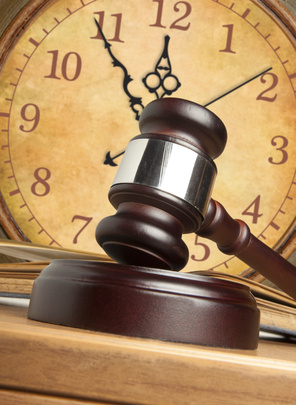 [blockquote]What’s the Statute of limitations?[/blockquote]The statute of limitations as it applies to personal injury claims is a law that determines the time when a lawsuit or legal remedy must be initiated or filed in a civil action.
[blockquote]What’s the Statute of limitations?[/blockquote]The statute of limitations as it applies to personal injury claims is a law that determines the time when a lawsuit or legal remedy must be initiated or filed in a civil action.
The failure to commence the claim or to file the lawsuit in the appropriate court by a certain date often means that the claimant or plaintiff will not be able to sue a particular defendant or defendants for damages as a result of that parties’ negligent conduct.
The Discovery Rule
The Personal Injury Statute of Limitations for New Jersey is generally two years, though that time may vary depending on certain circumstances and the status of the parties involved.
A personal injury claim includes more than just a negligence claim in an auto accident, for instance. Other examples that come under the two-year statute of limitations include:
- Wrongful death
- Products liability
- Premises liability (slip and fall)
- Medical malpractice
New Jersey has a “discovery rule,” which can extend the time for filing a personal injury lawsuit beyond two years so that it accrues not on the date of the negligent act or omission, but when the plaintiff discovers, or should reasonably have discovered through due diligence or intelligence, the basis for the claim. In most injury cases, though, the two-year limit will apply.
In other cases, however, an injured victim or family member may not discover the conduct or omission that constitutes an actionable basis until years later. In a toxic chemical case, the plaintiff may not become ill until many years after being exposed. In a medical malpractice case, a medical tool that was left inside a patient’s body cavity may not be discovered until the patient begins to suffer symptoms, which may be well after the two-year limit for filing has passed.
Since the injured victim would have no way of knowing that an omission or negligent act led to the injury until symptoms were manifested, the two-year period may not accrue until the defendant’s conduct or omission should have been discovered.
Factors Tolling the Statute of Limitations
In some cases, the two-year statute may not begin or accrue after a certain condition has been established or met:
- The plaintiff attains the age of 18
- When the plaintiff is considered legally sane
- When the plaintiff emerges from a bankruptcy action
In insanity matters, individuals who are unable to understand their legal rights because of mental incompetence or derangement may have the statute of limitations tolled until deemed sane by the court.
In bankruptcy cases, all civil actions are stayed until the debtor’s bankruptcy is dismissed or a discharge is granted.
For minors, a personal injury action does not begin to accrue until the child’s 18th birthday. In a New Jersey medical malpractice case that is the result of a birth injury, however, the claim against the physician or medical facility or other party involved must be filed by the child’s 13th birthday.
Municipalities
For personal injury lawsuits against a public entity such as a county, state or municipal agency, an adult plaintiff must file a notice of claim with the appropriate entity within 90 days of the occurrence. For example, if a person suffered a slip and fall in a state office building or was injured by a county vehicle, the injured party must file a particular claim with that party’s office within 90 days.
Minors have until 90 days past their 18th birthday to file such claims unless they are alleging a medical malpractice claim stemming from a birth injury. In this case, it must be brought within 90 days of the minor’s 13th birthday.
Further Information
If you need to speak to a Personal Injury Lawyer regarding the statute of limitations or regarding any other personal injury matter, then please do not hesitate to Contact Us for a free initial consultation and case evaluation.

